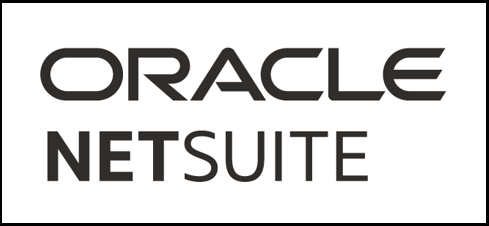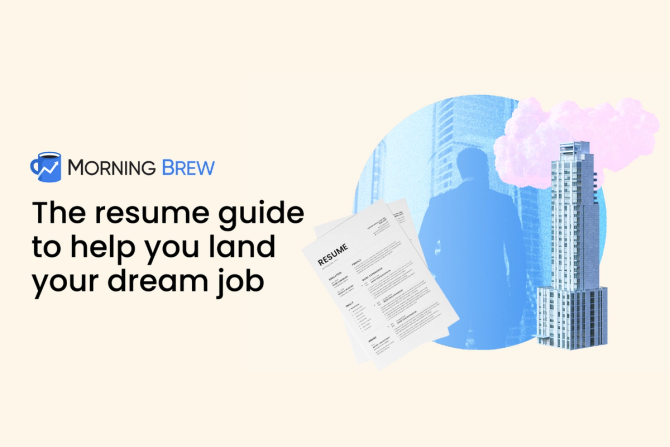Hello! If this earnings season is teaching us anything, it’s that we really love fast food, soda, and chips, no matter how expensive they get. But we already knew that, didn’t we?
In this issue:
 High finance High finance
 Booster shot Booster shot
 On the up and up On the up and up
— Drew Adamek, Leonard Robinson, Maia Anderson
|
|
Mack Hueber
Mack Hueber is the CFO of Beak and Skiff, a beverage company and apple orchard in upstate New York that has, in recent years, expanded into CBD- and cannabis-infused products. In 2022, as the state moved to legalize and regulate the sale of cannabis, Beak and Skiff launched Ayrloom, an entire line of CBD- and cannabis-infused products including balms, gummies, and sparkling waters.
CFO Brew recently spoke with Hueber about entering the cannabis market and how it has impacted his role as a CFO.
This interview has been lightly edited and condensed for clarity.
What are some financial tools that you find yourself using frequently?
For me, I’m an Excel nerd constantly doing different market scenarios, modeling out different retail scenarios—when we hit 20 stores, 50 stores, 200 stores—and anticipating, again, quicker price compression than we all hope. What hurts a lot of cannabis companies is that we model out for the best-case scenarios to continue for a while. If you can model out and be sustainable with price compression that we know is coming in the next three years, but have that model today and you can be profitable—that’s a huge win. So, for us, it’s about [being] extremely conservative with topline pricing and overall overhead.
What’s been the most difficult part of this expansion into cannabis for your role as a CFO?
The greatest challenge is, especially in New York, is that it’s a brand new market. Being able to accurately forecast [or] project cash flow six months—let alone a month from now—is always going to be a challenge. We’re seeing a slow retail rollout in New York, well below the speed that everyone had anticipated.
Also, from a regulatory standpoint, we’re also operating under conditional regulations, meaning they can change on the fly whenever a state agency wants to change them. If you’re operating under what you think are compliant regs today, that could change tomorrow. It’s just being flexible, nimble, or versatile.
Continue reading.—LR
|
|
TOGETHER WITH ORACLE NETSUITE
|
The economic landscape can change at the drop of a hat. And business leaders can’t just wait around for the next fedora to fall—you have to lead. Oracle NetSuite’s new guide about preparing for economic fluctuations can help you bring stability to uncertain times.
It all comes down to effective, flexible planning. Whether that’s through building customer and supplier health into your cash flow calculations or by developing tiered forecasts, you can be prepared and mitigate risk.
Oracle NetSuite’s guide provides a working plan to make your business more resilient, including how to:
- extend payment terms with vendors
- delay hiring for non-critical roles
- harness the right tech for scenario and cash flow planning
Get the full guide.
|
|
HBO Max via Giphy
Pharmaceutical company AstraZeneca executives have set some lofty goals as they anticipate a steep decline in Covid-19 pharma revenues for 2023.
One of the top 10 largest pharmaceutical companies in the world by revenue, AstraZeneca brought in $44.4 billion in revenue in 2022. The company develops drugs designed to treat a wide range of diseases—focusing on oncology; cardiovascular, renal and metabolism (CVRM) diseases; and rare diseases—but like many pharmaceutical companies, it shifted focus to Covid when the world desperately needed vaccines and treatments during the pandemic.
Now, as much of the world enters the endemic phase of Covid, Aradhana Sarin, AstraZeneca’s executive director and chief financial officer, told Healthcare Brew that the drugmaker will hit the ground running on research and development. The company has also set some aggressive goals to bring new drugs to the market, and this could help AstraZeneca make up for a “very substantial decline in demand for Covid medicines” that CEO Pascal Soriot said he expects to see this year during the company’s latest earnings call.
Bringing 15 drugs to the market in the next seven years is an ambitious goal, considering the company released 10 drugs over the last 10 years, according to Sarin.
Keep reading on Healthcare Brew.—MA
|
|
Richard Drury/Getty Images
Finance professionals around the world grew more confident in global economic conditions for the third consecutive quarter although confidence remains lower than the first quarter of 2022, according to a new survey.
This comes from the latest Global Economic Conditions Survey (GECS), published by the Association of Chartered Certified Accountants (ACCA) and Institute of Management Accountants.
Finance professionals in Western Europe had the greatest confidence improvement, rising 30 points as economic fears around the Russia-Ukraine conflict stabilized and energy prices declined, according to the survey. Confidence in the Asia-Pacific region was boosted by the relaxation of China’s zero-COVID policy, according to the survey. North America increased around 10 points despite tightening Federal Reserve monetary policy, according to the survey.
“What stands out is the 30-point improvement in confidence in Western Europe,” said Loreal Jiles, vice president of research and thought leadership at IMA in a press release. “However, this good news was not limited to Europe; Asia-Pacific, North America, and South Asia also registered an improvement. This was a broad-based pick-up, with the exception of Africa and the Middle East.”
Continue reading.—LR
|
|
|
Safekeeping that saves. Here’s a frustrating paradox: Fraud costs $$$, but fraud prevention sure isn’t cheap either. How to stay secure while maximizing budgets? Plaid’s got the answer. Their new guide will show you how to calculate the value of identity verification so you can prevent fraud and boost your bottom line. Read it here.
|
|
Today’s top finance reads.
Stat: 18.5%. That’s how much GM’s profits fell in the first quarter. The automaker took a $900 million hit in severance and other costs when it cut 5,000 jobs earlier this year. (the New York Times)
Quote: “There is not an exemption in our nation’s civil rights laws for new technologies and artificial intelligence that engages in unlawful discrimination”—Rohit Chopra, director of the Consumer Financial Protection Bureau, on potential regulations on AI (CNBC)
Read: Engaging with divisive social issues is becoming riskier for companies. (the Wall Street Journal)
|
|
-
Alphabet authorized a $70 billion stock buyback plan. The company also had a $70 billion buyback last April. Must be something really special in their Easter basket.
-
Consumer confidence is weakening, hitting a nine-month low on economic worries.
-
Microsoft’s $69 billion bid to acquire Activision was blocked by British antitrust authorities. The tech giant plans to appeal the decision.
-
Boeing’s revenue took off in Q1 despite production problems that slowed the delivery of 737s.
|
|
|
Ever wonder why you never heard back from the jobs you applied for? Maybe your resume wasn’t strong enough. Until now, that is. Morning Brew created the ultimate guide to perfecting your resume—and in typical Brew fashion, it’s completely free. Check it out here and craft the stellar resume you deserve.
|
|
Catch up on top CFO Brew stories from the recent past:
|
|
|









